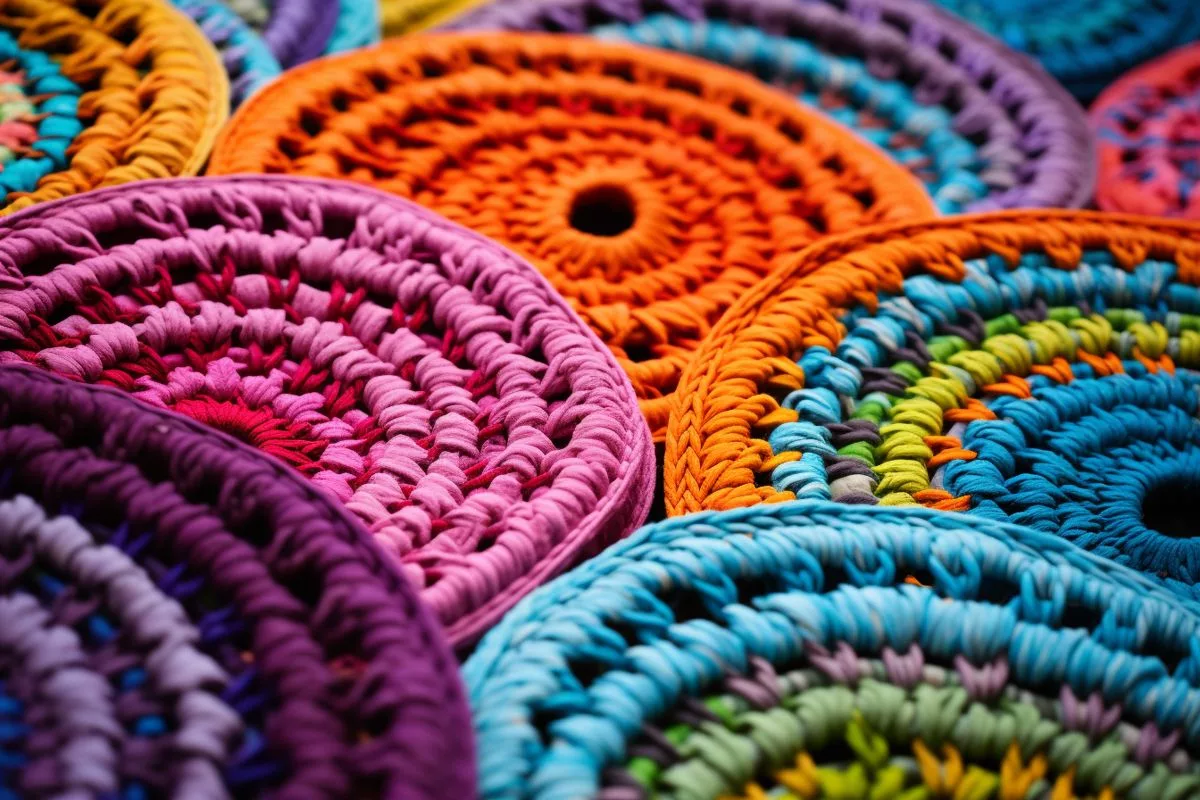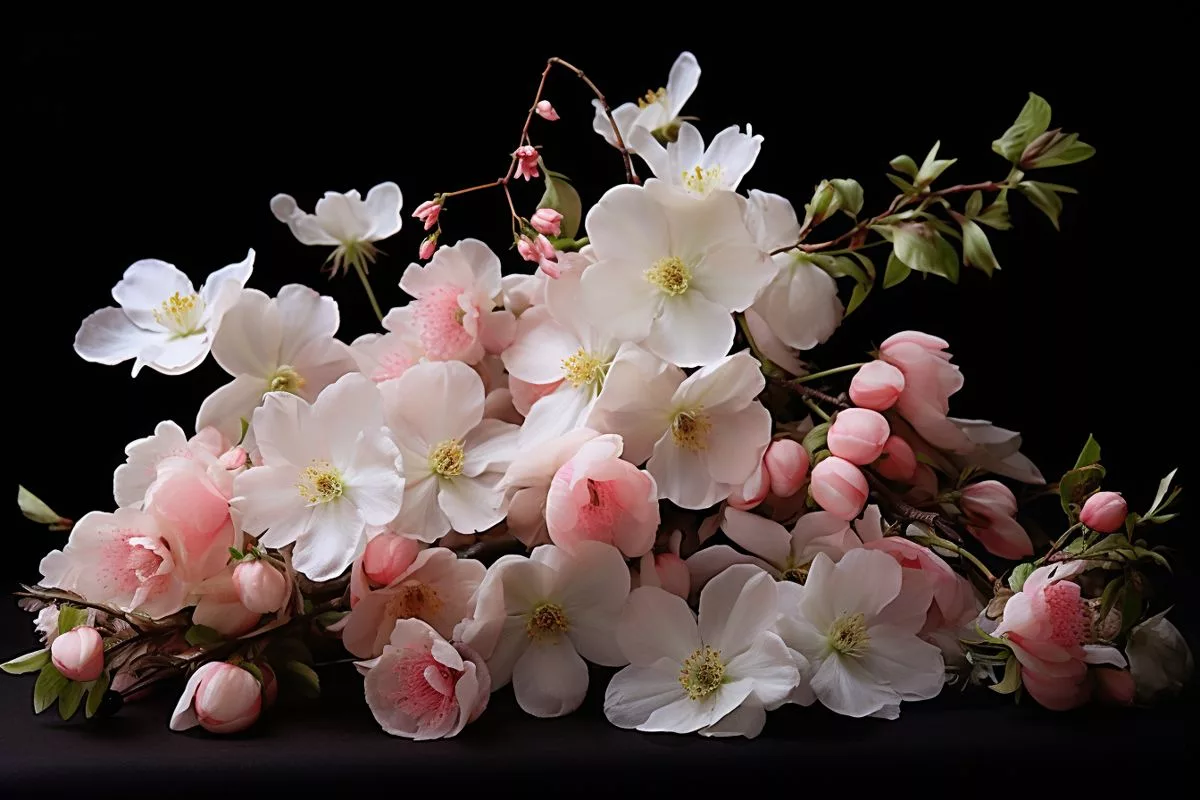Simelane’s Umlazi Arts and Recycling is an inspiring tale of artistic entrepreneurship and sustainability. Simelane learned to crochet with his grandmother and decided to transform discarded plastic waste into colorful mats. His works gained popularity through social media, and he now faces the challenge of meeting the growing demand for his product. Simelane dreams of expanding his business and bringing innovative recycling concepts to life. His story highlights the potential of creative solutions to confront environmental and economic challenges and the power of art as a mechanism for social and environmental change.
The Story of Simelane and Umlazi Arts and Recycling: An Inspiring Tale of Artistic Entrepreneurship and Sustainability.
The Birth of an Idea
In every artist’s journey to entrepreneurship, one usually finds a blend of passion, determination, and immense respect for their art form. Simelane, the mind behind Umlazi Arts and Recycling, encapsulates this perfectly. His South African enterprise breathes new life into discarded plastic waste, transforming it into colorful mats via the age-old art of crocheting. His narrative portrays the transformative potential of artistry, highlighting the crossroads where business, sustainability and cultural traditions meet.
Simelane’s artistic voyage commenced under the guidance of his grandmother, where he learned the delicate art of crocheting. He recognized a need to address the alarming rate of plastic consumption and the surprisingly infrequent recycling habits. Simelane realized that many disregarded plastic items could be repurposed, leading him to an inventive resolution – crocheting them into mats.
Simelane reminisces, “The idea was born from my childhood encounters, driven by the wish to do something I love.” His fond memories of crocheting with his grandmother coupled with his passion for recycling, charted the path for his entrepreneurial expedition.
The Power of Social Media
The transformation of his passion into a fully-fledged business didn’t occur until he decided to showcase his works on social media. His crafted pieces, a testament to skilled artistry and respect for our planet, rapidly attracted public attention. Simelane recalls, “When I initiated sharing my work on Facebook, the reactions were overwhelming. My creations intrigued people who wanted to purchase them.” His posts resulted in over 2000 shares, and orders began streaming in from all over South Africa, marking the inception of Umlazi Arts and Recycling.
As the business flourished, Simelane confronted the typical dilemma of expansion – catering to the escalating demand with limited manpower. Presently, his team consists of two permanent employees and a range of temporary workers who help him collect the plastic materials. The rising demand for his work, combined with the time-consuming creation process, meant he could not fulfill all orders. Simelane candidly admits, “I have received over 1000 orders and have had to reject some due to capacity limitations.”
Dividing his time between producing the orders and sourcing raw materials is a challenge. Simelane explains, “A single order can consume four to five hours, depending on its size. The demand keeps surging, and I frequently have to interrupt my artistry to collect more materials.”
Looking Forward
Simelane envisions more than merely keeping up with the existing demand. His entrepreneurial spirit is propelled by the ambition to grow his business, experiment with assorted waste materials, and bring innovative recycling concepts to fruition. He dreams of establishing a larger factory where he could employ more individuals and accelerate the production process. Simelane acknowledges, “A need for machinery is evident if we’re to boost production speed.”
In Simelane’s story and the journey of Umlazi Arts and Recycling, we behold a touching fusion of art, sustainability, and entrepreneurship. Simelane’s progression serves as a reminder that a business can indeed be an extension of a passion, while simultaneously serving a broader cause, such as environmental conservation. As he continues to craft his art, he also weaves a narrative of resilience and innovation, a narrative that harmonizes with the rhythm of the crocheting needle, echoing the clicking sounds that filled his grandmother’s living room. His tale is inspiring, emphasizing the potential of creative solutions to confront environmental and economic hurdles. His journey underlines the power of art as not only a form of personal expression but also as a mechanism for social and environmental change.
1. What is Umlazi Arts and Recycling?
Umlazi Arts and Recycling is a South African enterprise that transforms discarded plastic waste into colorful mats via the art of crocheting.
2. Who is behind Umlazi Arts and Recycling?
Simelane is the mind behind Umlazi Arts and Recycling. He learned crocheting from his grandmother and combined his passion for the art form with a desire to address the alarming rate of plastic consumption and infrequent recycling habits.
3. How did Umlazi Arts and Recycling gain popularity?
Simelane showcased his works on social media, attracting public attention. His crafted pieces gained popularity due to the skilled artistry and respect for the planet they represented. His posts resulted in over 2000 shares, and orders began streaming in from all over South Africa.
4. What is the challenge faced by Umlazi Arts and Recycling with the growing demand for its product?
The rising demand for Umlazi Arts and Recycling’s work, combined with the time-consuming creation process, meant they could not fulfill all orders. Simelane has received over 1000 orders and has had to reject some due to capacity limitations.
5. What is Simelane’s vision for Umlazi Arts and Recycling?
Simelane envisions more than keeping up with the existing demand. His ambition is to grow his business, experiment with assorted waste materials, and bring innovative recycling concepts to fruition. He dreams of establishing a larger factory where he could employ more individuals and accelerate the production process.
6. What does Simelane’s journey underline?
Simelane’s journey underlines the power of art as not only a form of personal expression but also as a mechanism for social and environmental change. His story emphasizes the potential of creative solutions to confront environmental and economic hurdles.












